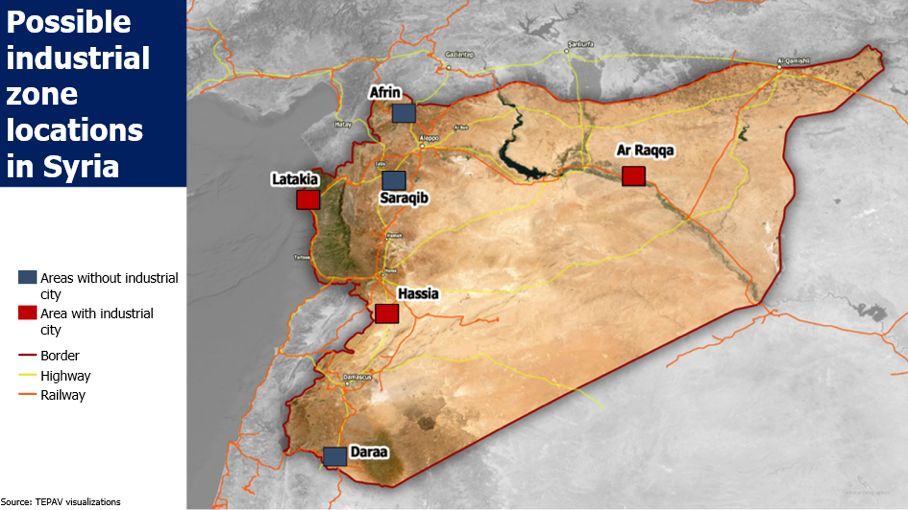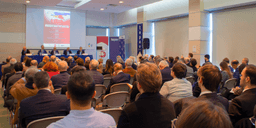
The TEPAV and TOBB-BIS delegations held meetings in Damascus on establishing joint industrial zones to support Syria’s reconstruction process.
Ahmet Şekeroğlu, Chairman of the Board of TOBB-BIS (Industry for Peace) of the Union of Chambers and Commodity Exchanges of Türkiye (TOBB), and Dr. Güven Sak, Founding Director of the Economic Policy Research Foundation of Türkiye (TEPAV), held a series of meetings in Damascus with officials from Syria’s Ministry of Social Affairs and Labor, the Central Bank of Syria, and the Syrian Investment Authority. Established by law in Türkiye, TOBB-BIS aims to implement Türkiye’s Organized Industrial Zone (OIZ) model abroad. In this context, work continues at the Turkish OIZ in Jenin, Palestine, which is the institution’s first project abroad. TOBB-BIS aims to carry this experience to Syria as well, contributing to the country’s reconstruction process.
The talks held in Syria addressed strengthening the country’s industrial infrastructure during the reconstruction process, increasing employment, and establishing joint industrial zones based on Türkiye’s OIZ model.
In the meetings, it was emphasized that the OIZ model is not only a production area, but also a system in which infrastructure services such as electricity, water, communication and transportation are managed in an integrated manner and security is ensured. It was stated that this structure offers investors a safe and predictable production environment, ensuring continuity and efficiency in industrial production.
It was emphasized that the success of OIZs in Türkiye stems from the combination of public planning and private-sector entrepreneurship, and that implementing a similar model in Syria would accelerate the economic recovery process, facilitate investments, reduce energy and logistics costs, and revitalize production on a regional scale.
The discussions focused on the potential of six industrial zones that could be established in the cities of Afrin, Saraqib, Raqqa, Latakia, Hasya, and Dera. Each zone is envisioned to assume different functions such as border trade, logistics, seaborne access, and the expansion of existing production capacity.

During the visit, it was underlined that 34,000 Turkish companies founded by Syrians in Türkiye, 7000 of which operate in manufacturing, represent an opportunity for Syria’s economic recovery. The parties reached a consensus on developing cooperation mechanisms in the areas of industrial infrastructure, investment incentives, vocational training, and public-private partnerships. It was also decided to continue the dialogue process with the aim of accelerating technical work in light of Türkiye’s OIZ experience and completing joint project designs in a short time.
These engagements, which will give new momentum to the Türkiye–Syria economic dialogue, are planned to be continued to transform Türkiye’s industrial experience into projects that will contribute to Syria’s reconstruction process.
You can access the report titled “How to Design an Economic Recovery? A Strategy Proposal for Syria” here.




